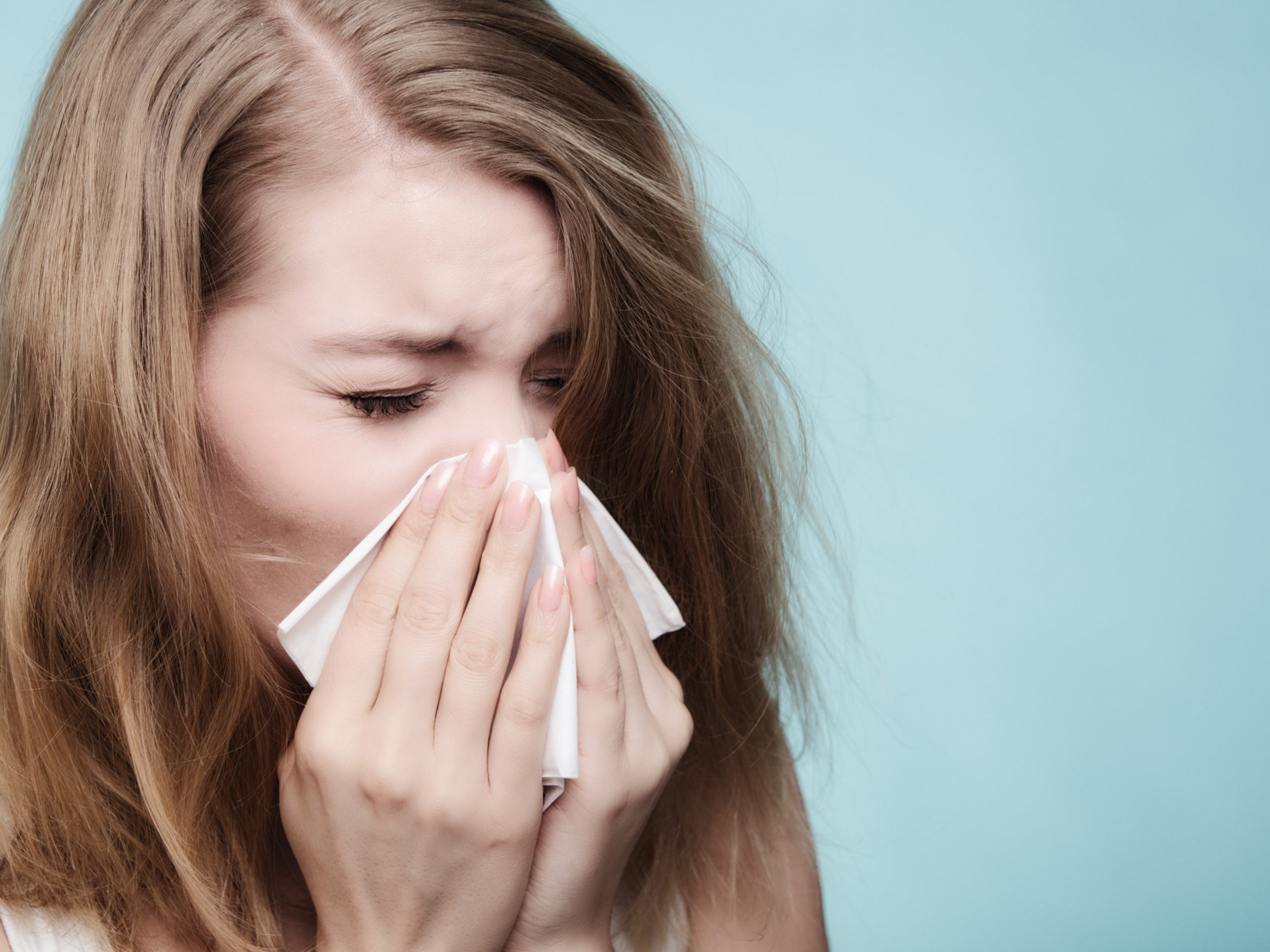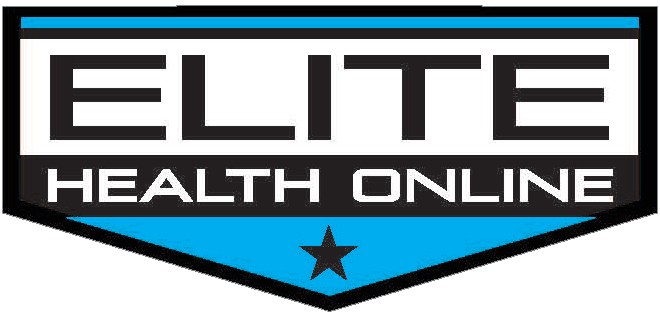
If you’ve ever been pregnant, you get it.
Lucy, You’ve Got Some Splainin To Do…
When a woman becomes pregnant, her body is inundated with hormones on levels she’s never experienced before. She IS creating a whole new life, so it’s a necessary happening, but not always easy. There is a common theme among 85% of women in their second trimester…CONGESTION!
What Does That Have to do With You?
Allergies and congestion are now being linked to hormone imbalances.
Hormones play an essential role in regulating activities throughout the body. Hunger and sleep imbalances can cause weight gain, loss of sex drive, brain fog, insomnia, and more. Imbalances of certain hormones such as histamine, cortisol, and thyroid hormones can result in allergy symptoms.
What is histamine?
Anyone who suffers from allergies knows about “antihistamine” medications like Benadryl that work by blocking the effects of too much histamine in the body. Histamine is actually a natural hormone produced by mast cells and other immune cells. It serves important functions related to digestion, mental function, and female reproduction.
When there’s too much histamine for the body to metabolize normally, it triggers symptoms like nasal congestion, itchy eyes, nose, and throat, and hives and rashes. It can also cause other symptoms not typically associated with allergies such as fatigue, headaches, and anxiety.
Estrogen and Progesterone
The mast cells that produce histamine also have receptors for estrogen and progesterone, two important female hormones. When estrogen binds to these receptors, it causes even more histamine to be released. At the same time, histamine increases estrogen production. This explains why some women begin experiencing allergies around age 40, especially after having children, during perimenopause, or after menopause.
There’s also a strong connection between allergies and other hormones produced by the thyroid and adrenal glands. Many patients have more than just allergy symptoms and in many cases there’s low thyroid or other hormonal imbalance.
The environment is messing with our hormones
Pesticides, herbicides, and a host of other environmental toxins are causing hormonal disruption in people. BPA, which is used in a wide range of plastic products, and other chemicals found in foods, household, and personal care products such as phthalates and parabens all have estrogen-like effects and are hormone disruptors.
HRT can help
Focus on treating the underlying cause of the problem, not just the symptoms because as soon as you stop taking the medication, they come back.
At Elite, we use diagnostic testing to dig deeper and then work with the patient to create a treatment plan, which almost always includes healthy lifestyle choices:
- Eat a diet rich in unprocessed, whole foods.Cruciferous vegetables like broccoli, cauliflower, cabbage, kale, and Brussels sprouts can help reduce a heavy estrogen load.
- Drink enough water. Divide your body weight in half and that’s how many ounces of water you should be drinking every day.
- Sweating releases toxins from the body, increases bone and muscle mass, improves brain clarity, and helps improve sleep.
- Reduce stress.When you’re stressed, you’re in a hypercortisol state (also caused by hormones) which is like being on prednisone all the time. This leads to a wide range of health problems, including asthma and allergies.
Cortisol
You might be surprised to learn that estrogen dominance plays a large role in the abrupt occurrence of allergies. Estrogen promotes the release of histamine…
The allergy/hormone connection is furthered by the relationship between progesterone and cortisol. Cortisol is your body’s natural anti-inflammatory hormone and is produced in the adrenal glands from progesterone.
And there’s the connection.
Because adequate levels of progesterone help to balance the effects of estrogen, estrogen dominance can also be called progesterone deficiency. When your body is deficient in progesterone, it will experience a decline in cortisol levels as well.
This hormonal imbalance can be what causes new mothers, middle-aged women experiencing the symptoms of estrogen dominance, and women whose ovaries are no longer producing progesterone to exhibit a sudden onset of allergies.
How histamine fluctuates with your monthly hormone cycle.
Interestingly, progesterone (the hormone that balances out estrogen in the body) has the opposite effect on histamine. When progesterone binds to its receptors on mast cells, it inhibits histamine release. In addition, DAO enzyme levels fluctuate throughout the month and are highest when progesterone is at its peak. This is all well and good if your hormones are balanced, but if you have low progesterone relative to estrogen, known as estrogen dominance, your body may be more prone to histamine intolerance.
Still not convinced about the connection between hormones and histamine? Histamine-intolerant women tend to experience more headaches at ovulation or right before their periods (times of the month when estrogen is elevated), histamine also increases contractions of smooth muscle cells, and histamine-intolerant women tend to have more menstrual cramping, possibly due to histamine-induced contractions in the uterus.
How to balance your hormones for healthier histamine levels.
Teri’s Story:
I struggled with allergies at a very high level for over 10 years. I was using a neti-pot every other day and taking allergy meds twice daily. My initial visit to Elite was for weight loss. 2 years later, I’ve lost weight, and gained so much of my life back. After my diagnostic testing, I learned that I wasn’t producing much Progesterone at all. My testosterone was non-existent and my Estrogen was low, but the most prevalent. The Dr. extended his advice along with a 6-month treatment plan. I decided to go with a pellet injection and progesterone tablets.
What I didn’t expect…
After about a week of being on my HRT plan, I ran out of allergy meds right before leaving town. I geared up for a week of severe nasal congestion with every OTC med I could find. A few days into my vacation, I realized I wasn’t congested AT ALL. I was at the beach, so naturally, I gave the salty air and water all the glory. It was assumed THAT was the reason for my non-allergy ridden week of bliss.
As soon as I returned home, I re-filled my prescription knowing I would need it asap. But I never did. I continued to stay sniffle free and breathing clearly. My sinuses were no longer swollen. It was truly a miracle in my opinion. I had NO idea how much my hormones were affecting my allergy and sinus issues.
What Does Your Tummy Say?
Finally, let’s not forget about the role of the gut in getting rid of both estrogen and histamine. Certain types of bad gut bacteria interfere with estrogen detoxification, causing more of it to circulate back into the body and increase estrogen load. To combat this, make sure you’re getting plenty of fiber in your diet to feed beneficial bacteria and keep things moving along.
What Is BPC-157 And How Does It Improve Gut Health?
BPC-157 (which stands for Body Protein Compound 157) is a chain of 15 amino acids known as a stable gastric peptide. Simply put, this means it’s derived from an already-existing protective protein in your stomach.
BPC-157 is known for accelerating the healing of many different wounds, including wounds to your tendons, ligaments, muscles, your nervous system, and your digestive tract. It acts systematically in your digestive tract to combat:
- Leaky gut
- Irritable bowel syndrome (IBS)
- Intestinal cramps
- Crohn’s disease
- Gastric ulcers
HOW?
It does this in several ways. First, BPC-157 aids in overall tissue repair by increasing blood flow to your damaged tissues. It is also an anti-inflammatory, meaning it aids in the production and healing of your inflamed intestinal tissues.
Moreover, it is cytoprotective, which means it maintains the mucosal lining of your GI tract. It also increases the growth of your hormone receptors, which can promote gut healing and decrease pain in damaged areas of your intestines.
With IBS in particular, BPC-157 helps by reducing swelling in your gut and by improving sphincter dysfunction. It can also neutralize damage to your gut lining caused by NSAID drugs such as:
- Aspirin
- Ibuprofen
- Celecoxib
- Diclofenac
- Diflunisal
- Etodolac
- Indomethacin
- Oxaprozin
- And more
These drugs can cause gut problems such as nausea, vomiting, diarrhea, and constipation. However, BCP-157 helps stave off those symptoms.
Dosage
Although there is no proven optimal dosage for BPC-157, the typical dosage is 10 mcg per kilogram of weight. As such, we suggest a dose of about 600 mcg for a 132-pound adult. You can take it orally with a pill or with an injection––either way, the dosage stays roughly the same.
BPC-157 is widely hailed in the medical community for its remarkable effects in the lower and upper GI tracts. Overall, it maintains the integrity of the mucosal lining in your GI tract while improving digestive function. It can also protect your gut from ulcers as a result of chemotherapy drugs.
All of these traits make BPC-157 a fantastic solution for gut health. However, there are plenty of other benefits as well.
The Other Potential Benefits Of BPC-157
Because BPC-157 improves the Brain-Gut Axis, it also helps with a whole host of issues, including:
Tissue Healing— BPC-157 accelerates the healing of damaged ligaments and tendon-to-bone injuries. In these injuries, it works by increasing type 1 collagen production. It also accelerates the healing of:
- Burns
- Eye Injuries
- Muscle damage
- Scar tissue
- Nerve damage
Toxic Damage—Alcohol and antibiotics damage the liver, but BPC-157 protects and promotes healing in your liver after its been damaged by toxins. It can also counteract negative effects in the opioid system, meaning it has the potential for addiction recovery as well as overdose treatment.
Brain Repair—BPC-157 acts as a neuroprotective by modulating serotonin and dopamine production in your brain. It can also help induce brain and nerve healing after a traumatic brain injury (TBI), stroke, and it can also protect against seizures (particularly hypoglycemic seizures induced by insulin overdose).
Heart Protection––It can protect the overall vascular system, including protecting cells from toxin-induced damage, protecting blood vessels from oxidative stress, normalizing blood pressure, and forming new blood.
Tip of the Day:
1 out of every 5 people in the U.S. suffer from allergies and gastric problems. We believe that number will continue to rise. If you are one of the sufferers, you can change that today. Maybe start with a few dietary changes and see where that goes. Unfortunately, without proper labs to tell you exactly what you might be missing, you’re really flying blind. Even if all you do is get your labs done, at least you’ll know where to start. Your blood is literally a map to your health plan. Why not stop and ask for directions? Cheers to YOUR GPS!!!
